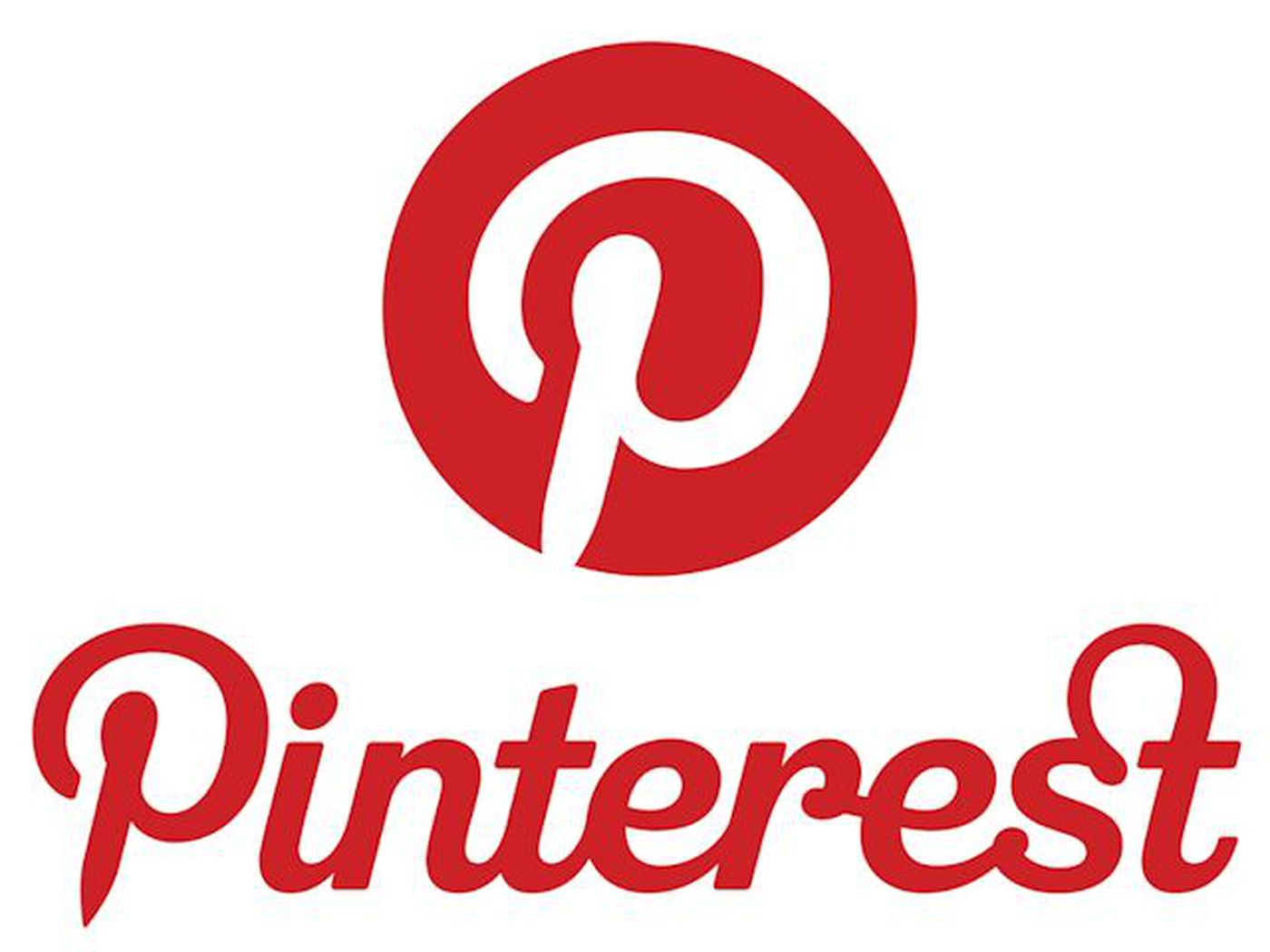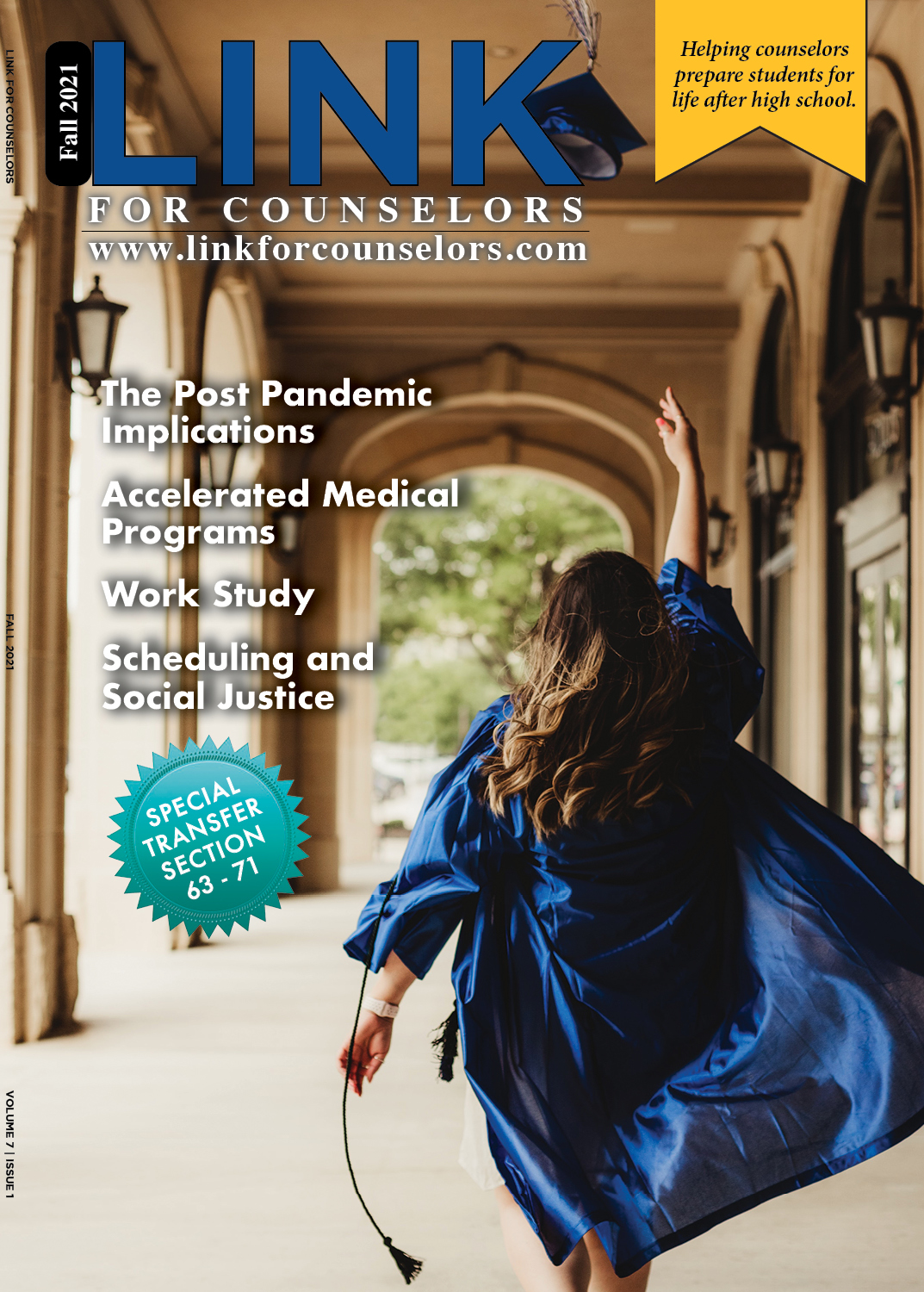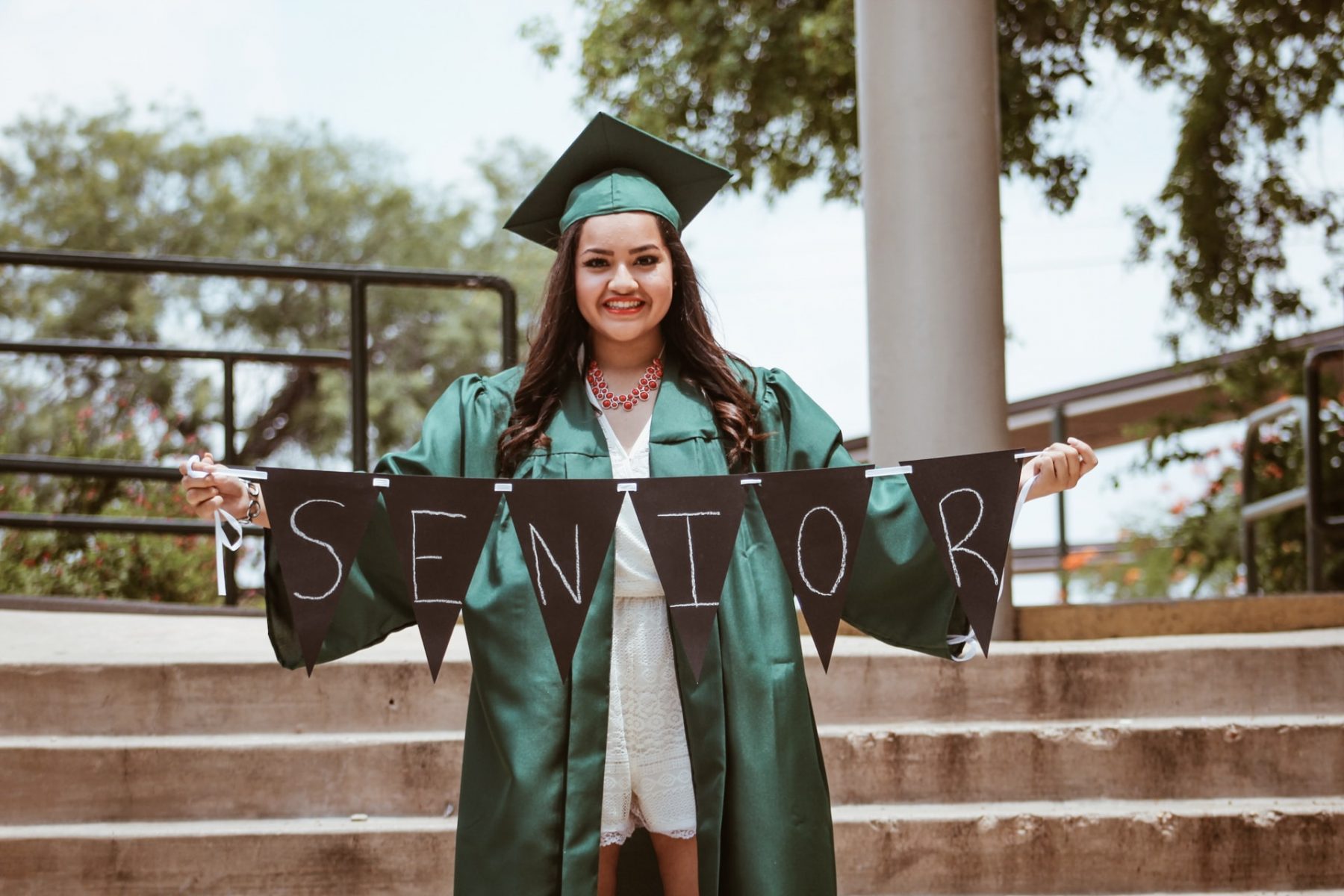Cool Things for Counselors (as seen on Pinterest)










Click on any of the above images for a direct link











Click on any of the above images for a direct link

In our surveys of Counselors Scholarships typically come up as the #1 thing Counselors want to see more coverage about. Here are some tips for finding and applying for scholarships from the Newton Daily News:
Use free scholarship aggregator sites online. There is no need to pay for a service with so many free tools available. Sites like scholarships.com, College Board and FastWeb all offer free searches. Students can often create profiles or filters to make the search easier.
Use school and community resources. Your office should generally have a list of local scholarships available to your students. Parents’ employers, civic organizations, area businesses, and religious and community groups are all potential scholarship sources. Colleges themselves often provide scholarship awards, so it’s well worth the time to explore the admission, financial aid and departmental pages of the student’s top college choices.
Complete the first application. Once one application is in, it may be easier for students to complete others. It may help to set aside time each week to search for and apply for awards.
Don’t give up. It’s important to keep looking for scholarships because sponsors make their opportunities available at various times. The search should continue during the college years too, as students may become eligible for departmental or industry-related awards later on.
See the big picture. While smaller awards may seem insignificant compared to the total cost of college, remember that every scholarship earned allows savings to go further and reduces the need to take out student loans that have to be repaid with interest. Multiple small awards can add up quickly as well.
Using these tips will put your students on the path to maximizing their scholarship opportunities.

We recently hired Signet Research to conduct a survey on the readers of our Fall 2020 issue of LINK for Counselors. 436 Counselors took the time to complete the survey. We appreciate those that did. This gives us valuable feedback that we can share with advertisers who allow us to send the magazine to Counselors for free. One lucky winner who completed the survey was also chosen at random by Signet Research to win a $100 Amazon gift card (Congratulations go to the winner – Terry Freeman of Watertown High School in NY).
Here is some of the interesting feedback we got back:
The average reader spends 37.6 minutes reading each issue.
An average of 1.5 additional Counselors reads each issue (if you don’t currently get your own copy you can subscribe using this link – https://www.linkforcounselors.com/link-magazine-subscribe/
When asked what would you like to see covered in future issues these were your comments. We will take this feedback and craft content in future issues to cover some of these issues:
If you see any of these you would like to write about in future issues of LINK for Counselors please reach out to us at Jason@linkforcounselors.com.

Of course, there are still a bunch of December stragglers. However, most students have written all the college application essays they’ll ever care to brainstorm, write and edit and then edit again.
Typically, we’ll see another burst of activity once the Early Decision notifications are released, typically by mid-December. But here are some tips on what seniors should be thinking about in December and January:
Below is an updated list of schools with their Early Action and Early Decision notification deadlines for 2022 grads:
| American University | 12/31 |
| Amherst College | early-mid December (ED) |
| Babson College | mid-Dec (ED1), 1/1 (EA) |
| Barnard College | mid-Dec |
| Bates College | 12/20 |
| Boston College | 12/15 |
| Boston University | 12/15 |
| Bowdoin College | mid-Dec |
| Brandeis University | 12/15 |
| Brown University | mid-Dec |
| Bryn Mawr College | Jan 1 |
| Bucknell University | mid-Dec |
| California Institute of Technology | mid-Dec |
| Carleton College | Dec 15 |
| Carnegie Mellon University | 12/15 |
| Case Western Reserve University | 12/4 (ED1), 12/21 (EA1) |
| Chapman University | late Dec (ED1), early Feb (EA1) |
| Claremont McKenna College | 12/15 |
| Colby College | 12/15 |
| Colgate University | mid-Dec |
| College of the Holy Cross | 12/15 |
| College of William and Mary | early Dec |
| Colorado College | mid-Dec (ED1), late Dec (EA) |
| Columbia University | mid-Dec |
| Connecticut College | mid-Dec |
| Cornell University | mid-Dec |
| Dartmouth College | mid-Dec |
| Davidson College | 12/15 |
| Dickinson College | mid-Dec |
| Duke University | mid-Dec |
| Emerson College | mid-Dec (ED1), mid-Dec (EA1) |
| Emory University | 12/15 |
| Franklin and Marshall | Dec 15 |
| George Washington University | late Dec |
| Georgetown University | Dec 15 |
| Grinnell College | mid-late Dec |
| Hamilton College | 12/15 |
| Harvard University | mid-Dec |
| Harvey Mudd College | Dec 15 |
| Haverford College | 12/15 |
| Johns Hopkins University | 12/10 |
| Kenyon College | 12/15 |
| Lafayette College | 12/15 |
| Lehigh University | mid-Dec |
| Loyola Marymount University | mid-Dec (ED1), mid-Dec (EA1) |
| Macalester College | 12/5 (ED1), 12/19 (EA1) |
| Middlebury College | 12/15 |
| Miami University – Oxford | 12/1 (ED1), 12/15 (EA1) |
| MIT | mid-Dec |
| Mount Holyoke College | late Dec |
| New York University | 12/15 |
| North Carolina State | 1/30 |
| Northeastern University | 12/15 (ED1), 2/1 (EA1) |
| Northwestern University | mid-Dec |
| Oberlin College | 12/15 |
| Occidental College | 12/15 |
| Pitzer College | 12/18 |
| Pomona College | 12/15 |
| Princeton University | mid-Dec |
| Providence College | 12/1 (ED1), late Dec (EA1) |
| Purdue University | 1/15 |
| Rensselaer Polytechnic Institute | 12/11 (ED1), 1/29 (EA1) |
| Rice University | mid-Dec |
| Santa Clara University | late Dec (ED1), late Dec (EA1) |
| Sarah Lawrence College | late Dec (ED1), late Dec (EA1) |
| Scripps College | mid-Dec |
| Sewanee: The University of the South | early Dec (ED1), late Jan (EA1) |
| Skidmore College | mid-Dec |
| Smith College | mid-Dec |
| Southern Methodist University | mid-Dec (ED1), mid-Dec (EA1) |
| Stanford University | 12/15 |
| Swarthmore College | mid-Dec |
| Texas Christian University | 1/1 (ED1), 1/1 (EA1) |
| Trinity College | mid-Dec |
| Tufts University | mid-Dec |
| Tulane University | 11/22 4pm CT (ED1), 1/15 (EA1) |
| Union College | 12/7 (ED1), 12/18 (EA1) |
| University of Chicago | mid-Dec (ED1), mid-Dec (EA1) |
| University of Michigan | late Jan |
| University of Notre Dame | mid-Dec |
| University of Pennsylvania | mid-Dec |
| University of Richmond | 12/15 (ED1), 1/25 (EA1) |
| University of Vermont | late Dec |
| University of Virginia | mid-Dec (ED1), mid-Feb (EA1) |
| University of Wisconsin | By 1/31 |
| Vanderbilt University | mid-Dec |
| Vassar College | mid-Dec |
| Villanova University | 12/15 (ED1), 1/15 (EA1) |
| Washington and Lee University | late Dec |
| Washington U in St. Louis | 12/17 |
| Wellesley College | mid-Dec |
| Wesleyan University | mid-Dec |
| Willamette University | 12/30 (ED1), 12/30 (EA1) |
| Williams College | 12/15 |
| Yale University | 12/15 |
Lee Bierer is the Founder of College Admissions Strategies – Charlotte, NC. She can be reached at lee@collegeadmissionsstrategies.com or via their website at: www.collegeadmissionsstrategies.com

You might already know that college essay schedules are one of my favorite topics.
Boring, right?
Nope. Not at all.
I’m not just talking about deadlines and due dates. I’m talking strategy. And if you know anything about me, you know I love strategy.
When’s the last time you mapped out your college essay process and determined how long each task should take? When’s the last time you tested your assumptions and adjusted your process to accommodate new insights?
Do you know what time of day an assignment should be due, so you don’t stress out checking for it?
We do: Midnight.
Why? Because if I tell a student, Send me your work before you go to bed on Tuesday, I can wake up bright and early Wednesday morning and look for it.
If it’s not in my inbox, I send a reminder. Immediately. I don’t wait to see if maybe it will show up later. I don’t check on Tuesday to see if they finished the assignment early. I stick to my schedule.
We used to say, Send me your work on Tuesday by noon, and then we’d check at 1:00, 2:00, 3:00…
If the assignment didn’t show up, we’d get distracted: Maybe they’re running late. Maybe something came up. When should I remind them? How strict should I be?
We don’t have time for that. Kim (Lifton) and I have a business to run and students to guide and colleagues (like you!) to support.
Curious? Here’s a sample schedule from our College Essay Experience training for professionals It’s nearly identical to the schedule we use with students. Check it out, then adjust it to fit your unique situation and students.
Take charge of your time! You deserve it!

Susan Knoppow is CEO of Wow Writing Workshop. Focused, incisive and creative, Susan can turn the most daunting writing challenge into a series of simple steps. With Wow’s President, Kim Lifton, she developed the Wow Method by combining Kim’s journalistic training with her own organization and instructional design skills. A former executive speechwriter and copywriter, Susan is also a published poet and essayist and holds a BA in Psychology from the University of Michigan and an MFA in Writing from Vermont College. Susan and Kim have co-authored three books – How to Write an Effective College Application Essay (The Inside Scoop for Parents, Students, Counselors). They are members/affiliates of the Michigan Association of College Admission Counseling (MACAC), the National Association of College Admission Counseling (NACAC), the Independent Educational Consultants Association (IECA) and the Higher Education Consultants Association (HECA).
Coming Up
We cover a new topic in our Pro Chats each month – Wednesdays at 1:00 p.m. Eastern. Click here to register for our free sessions!
January 01/12/22 – A Taste of the College Essay Experience (a special 60-minute webinar)
Our free gift to you!
And, if you’d like a free electronic copy of our book for counselors, How to Write an Effective College Application Essay, the Inside Scoop for Counselors, download it here.

Medical schools aren’t concerned about your undergraduate major. They do care about your GPA (especially grades in certain pre-med courses which you can take no matter your major), and your MCAT score.
If not rigor, then what? Activities like clinical volunteering, bench research, and community service/leadership.
Example of NOT pursuing rigor: a student receives credit for AP Spanish. Instead of higher-level Spanish classes (language mastery is not the student’s goal – only fulfilling requirements), the student takes beginner Spanish, an easy A. Same for AP credit in chemistry or biology: take the “101” version of the class. Better an A in general chemistry than a B in a higher level of general chemistry despite your AP credit. NOTE: premeds should always enroll in courses they could skip because of AP credit – some medical schools don’t accept AP credits to qualify for admission. GPA and MCAT score are what makes your balloon rise.
To successfully apply to medical school, you must have nine undergraduate courses:
Other helpful courses: Psychology, Ethics, Genetics, Microbiology. Yes, you’ll need a year of English Composition, but that’s part of virtually every college’s core curriculum. Regardless of major, a student must fulfill those necessary classes (check out AMCAS.org for more resources and common courses required). Also, successful applicants should have several extracurricular activities (e.g., bench research, hands-on and shadowing experience related to medicine, and community outreach, leadership, teaching) with a goal of roughly 500 hours in two of them.
Medical school admissions is nothing like college admissions; sometimes the guidance seems 180 degrees opposite! For what it’s worth, I think the best majors for medical school admission (depending on your academic interests) are:
As a side note, attending an elite university as an undergraduate is not ideal because a very high GPA will be harder to achieve. With the extraordinary expense of a medical school education, it makes sense to attend a less prestigious college, receive a robust merit scholarship, and save your money for med school. If you need any guidance applying to medical school, our educational consultants specialize in helping students with their grad school admissions process.
This post was written by Judi Robinovitz of JRA Educational Consulting and Score Academies. Since 1980, thousands of families have turned to Judi Robinovitz, Certified Educational Planner, and her team of seasoned professionals to help them choose, apply to, and get admitted to their “best fit” schools, colleges, and graduate schools. Check them out at https://www.jraeducationalconsulting.com/

The American School Counselors Association puts out some great videos for Counselors. Here are some of their best with direct links:
Suicide Risk Assessments Pose Legal Risk to School Counselors
The School Counselor’s Role in Social/Economic Development
Infusing a Caring Climate Into Your School
Promote Diversity in STEM Careers
Crystal Brewer: My Journey to School Counseling
These are some great resources. Check them out!

This video can be shared with students to help them see past the surface. Keith Deltano uses comedy to help students really think about bullying, their appearance and other issues they deal with on a daily basis in a fun way.
Check his video out here: https://www.youtube.com/watch?v=s9vxLxWGSYI
| For more video lessons go to www.CharacterVideo.org. If interested in booking virtual assemblies please go to www.DontBullyOnline.com. |

ATTENTION VIRTUAL SCHOOL COUNSELORS: A survey is being conducted to understand the lived experiences of virtual school counselors before and during the COVID-19 pandemic to help support other counselors.
To participate, you must be 18 years of age or older and a certified virtual school counselor since January 2017 or earlier (at least 3 years of virtual school counseling experience prior to COVID-19). Participants will be asked to participate in a virtual, recorded, 60-minute interview and to review the interview transcript 2 weeks later.
If you would like to participate and meet the study criteria, please contact Dr. Robert Pincus at 352-396-1108 or rgpincus@liberty.edu for more information or to schedule an interview. A consent document will be emailed to participants one week before the interview. The IRB # is IRB-FY21-22-111

STEM(science, technology, engineering, mathematics) careers continue to be some of the most in-demand and highest-paying out there, but earning the required degree to qualify for these careers can be expensive. Fortunately, with independent scholarships, students can lower the financial burden of tuition without taking out loans. In this guide, you’ll find a list of current STEM scholarships & grants that can help make college more affordable. Engineer Warehouse has put together a list of scholarships specifically for students interested in studying STEM Careers. Here is their list:
Amount: $500 to $10,000 (undergrad); $1,000 to $5,000 (graduate)
A variety of undergraduate scholarships and graduate awards for AIAA student members in good standing. Requirements will vary by scholarship or award, but an applicant’s education plan must provide entrance into a science or engineering field encompassed by the AIAA.
Deadline: January 31
Amount: $2,500 to $5,000
The ASCE offers 8 undergraduate scholarship opportunities for students studying civil engineering or closely related fields. Some scholarships are specific to a certain area of civil engineering. Applicant must be a current ASCE student member.
Deadline: February 10
Amount: $1,500 to $13,000
Over 60 scholarships in a wide array of amounts are available to both undergraduate and graduate students studying mechanical engineering or a closely related field. Open to current ASME student members in good standing.
Deadline: March 1
Amount: $10,000
Available to students working toward a degree in engineering, applied or natural science, and plan to pursue research after graduation. Students are nominated by faculty members at their schools. To be nominated students must be in at least their second year of studies at one of the 40 eligible colleges, and have conducted extensive lab and research work in their chosen field.
Deadline: Student nominations due to Vice Provost for Undergraduate Programs by the end of January.
Amount: $2,000 to $3,000
Merit-based scholarship opportunities for undergraduate and graduate STEM students awarded two times a year. Open to students both within and outside the U.S. Applicants need to provide an education/research proposal(max 4000 characters).
Deadline: November 30 (Fall) and May 1 (Spring)
Amount: $1,000
Open to high school senior NSHSS members who plan to pursue a degree in a STEM major, including any area related to the medical field. Applicants need to submit a 500-word personal statement on the subject of why they have selected their intended STEM major and future career plans.
Deadline: April 1
Amount: $1,500
Scholarship awarded 3 times a year to students interested in pursuing STEM degrees. Students must be registered users of NextStepU.com, and submit a short (150-250 word) essay explaining their interest in a STEM education.
Deadline: Continuous
Amount: $2,500 to $5,000
Available to both undergrad and graduate students pursuing a career in teaching STEM. Applicants pursuing a credential or licensure must have completed a B.S. or graduate degree in a STEM major.
Deadline: April 13
Amount: $3,000
This scholarship is open to all women pursuing a degree in STEM. Students are asked to submit a 500 to 800 word essay on one of the following subjects: your favorite app and what you like about it, or a time an app played a significant role in improving your day.
Deadline: April 15
Amount: $5,000
Developed to encourage minority women to pursue a career in STEM. This scholarship is pen to non-freshman undergrads currently enrolled full-time at a United Negro College Fund member school. Priority is given to students from Massachusetts, but all eligible U.S. residents are eligible and encouraged to apply.
Deadline: June 9
Amount: $500 to $2,500
A scholarship available to all women currently enrolled in an undergraduate engineering or technical science degree program at an ABET-accredited or Alpha Omega Epsilon National Foundation-approved institution. Applicants are required to not be receiving education funds from another organization.
Deadline: February 15
Amount: Full tuition
This full-tuition scholarship is awarded to a high school senior or undergraduate student pursuing a STEM degree. Applicants are required to submit a “mini-lecture” video (max 3 minutes) on a STEM topic.
Deadline: December 11
Amount: $1,000 to $15,000
SWE sponsors a wide variety of scholarships, including non-traditional awards, for women pursuing undergraduate and graduate degrees in computers, engineering, or technology at an ABET-accredited school. Awards are available to both SWE members and non-members, although some scholarships require SWE membership.
Deadline: May 1 (freshmen), February 15 (sophomores through graduate students)
Amount: $5,000
This award is available to a full-time junior or senior undergraduate, or a graduate student, with a declared major in civil, chemical or environmental engineering, or one of the environmental sciences. Students who apply must identify as a member of a minority group.
Deadline: April 30
Amount: $10,000 USD (U.S. students), $5,000 CAD (Canada students)
Open to students from a historically underrepresented group (African American, Hispanic, American Indian, or Filipino/Native Hawaiian/Pacific Islander). Students who apply are required to be currently enrolled in college, or a high school senior intending to enroll, in a U.S. or Canada degree program in computer engineering, computer science, or a closely related technical field.
Deadline: December 11
Amount: $10,000 USD (U.S. students), $5,000 CAD (Canada students)
The scholarship is available to students currently pursuing an undergraduate, graduate, or PhD degree in computer science, computer engineering, or closely related technical field. Applicants who apply must have, or consider him or herself to have, a visible or invisible disability.
Deadline: December 10
Amount: Up to $5,000
Undergraduate scholarship for students pursuing a degree in a STEM-related major. Students applying must be of black heritage, and a U.S. citizen or permanent resident attending, or planning to attend, an accredited four-year college or university.
Deadline: June 15
Amount: $2,500 (freshmen/sophomores); $5,000 (juniors/seniors); $5,000 (students who require fifth year of study)
The UNCF offers 100 awards each year to African American students who are pursuing their undergraduate STEM degrees. Applicants are required to have a demonstrated financial and unmet need, and show a readiness and commitment to pursue their STEM degree program.
Deadline: January 16
Links to all these specific scholarships can be found here: https://engineerwarehouse.com/pages/scholarship